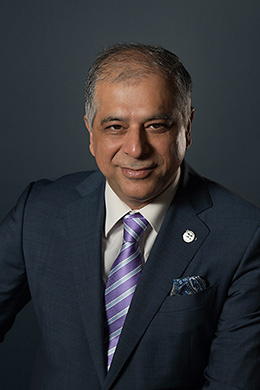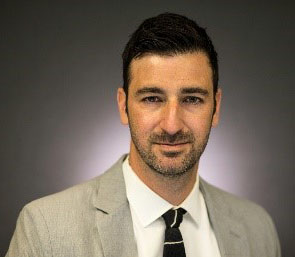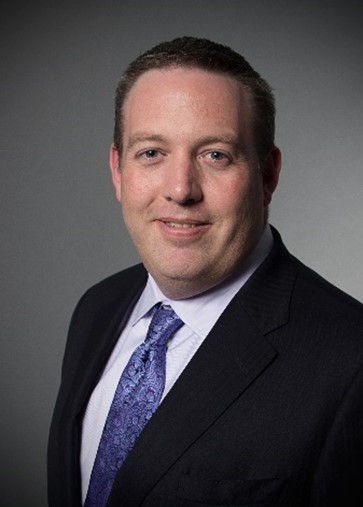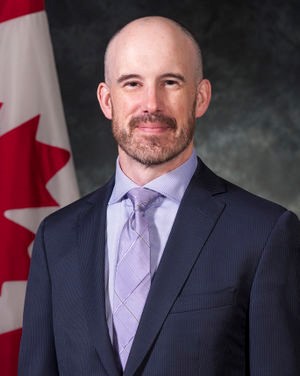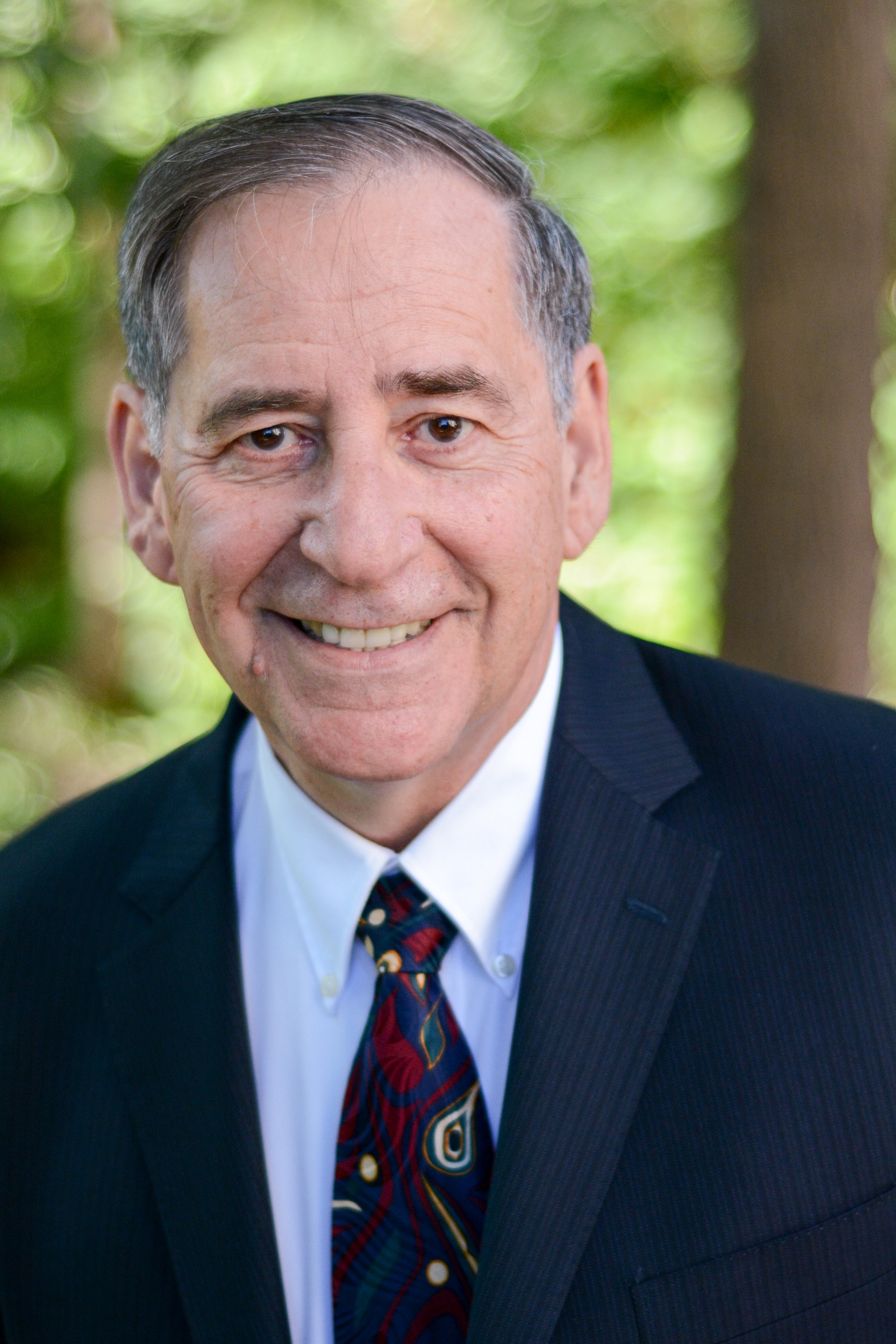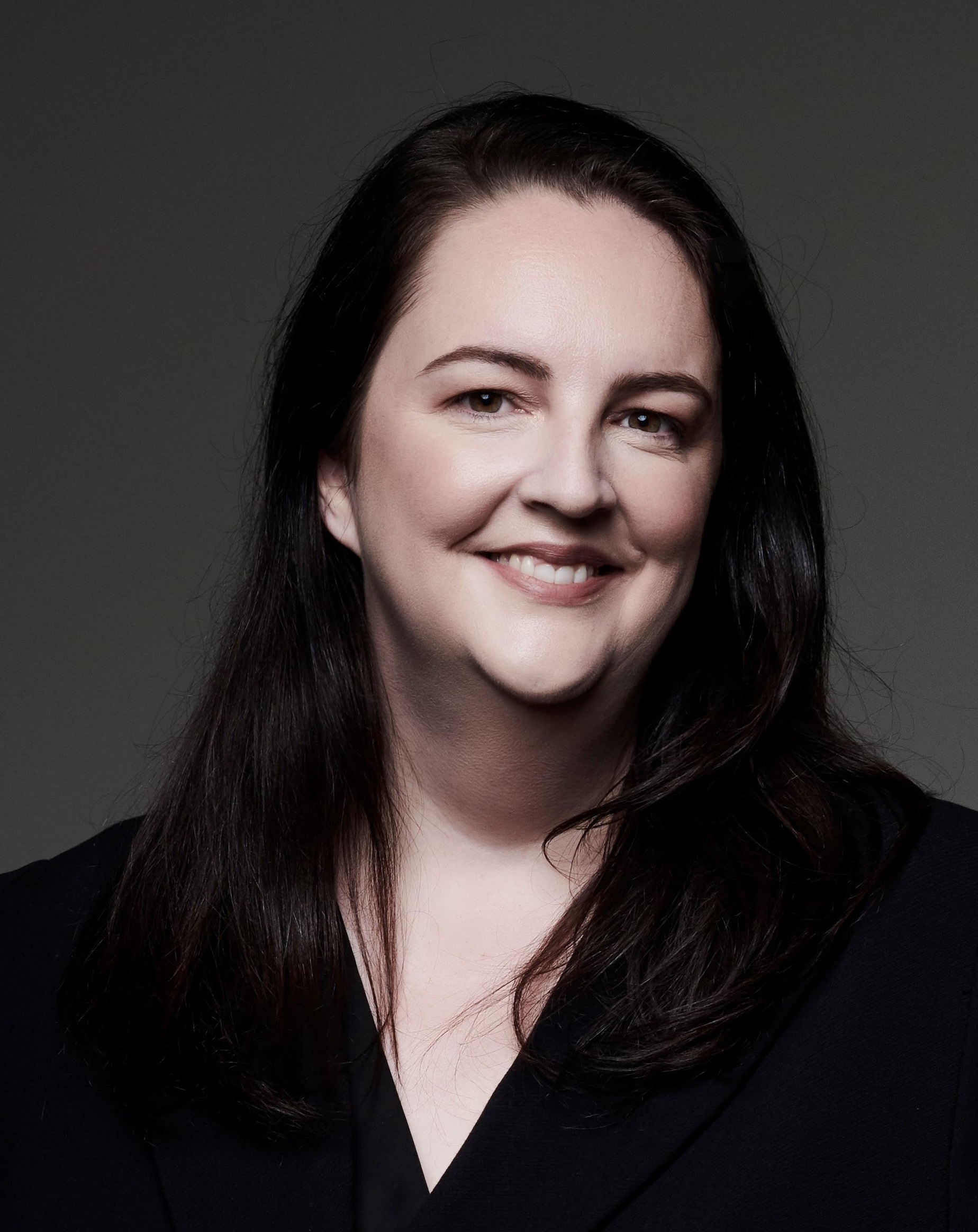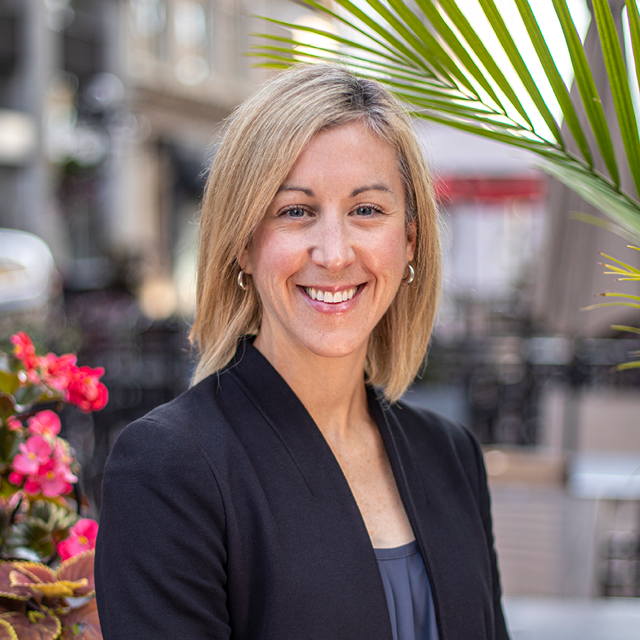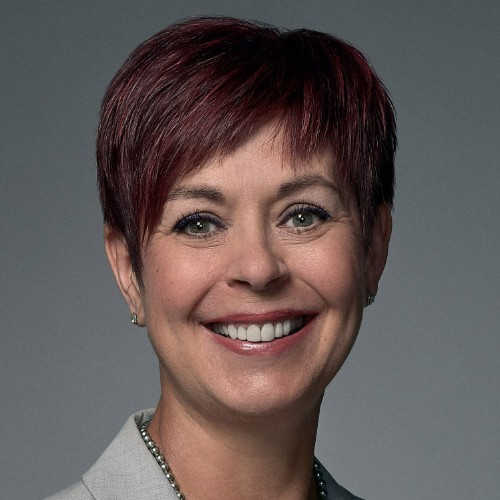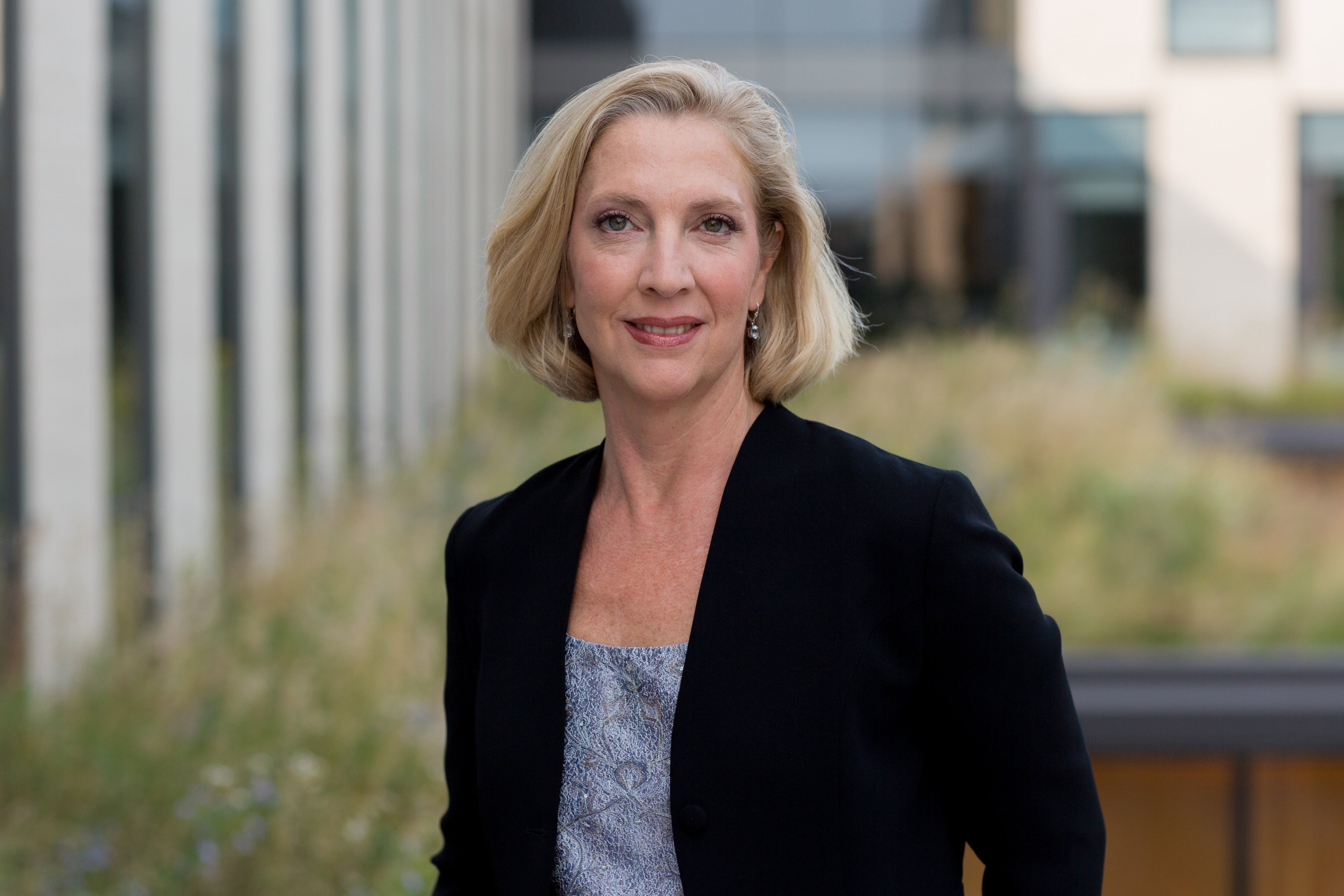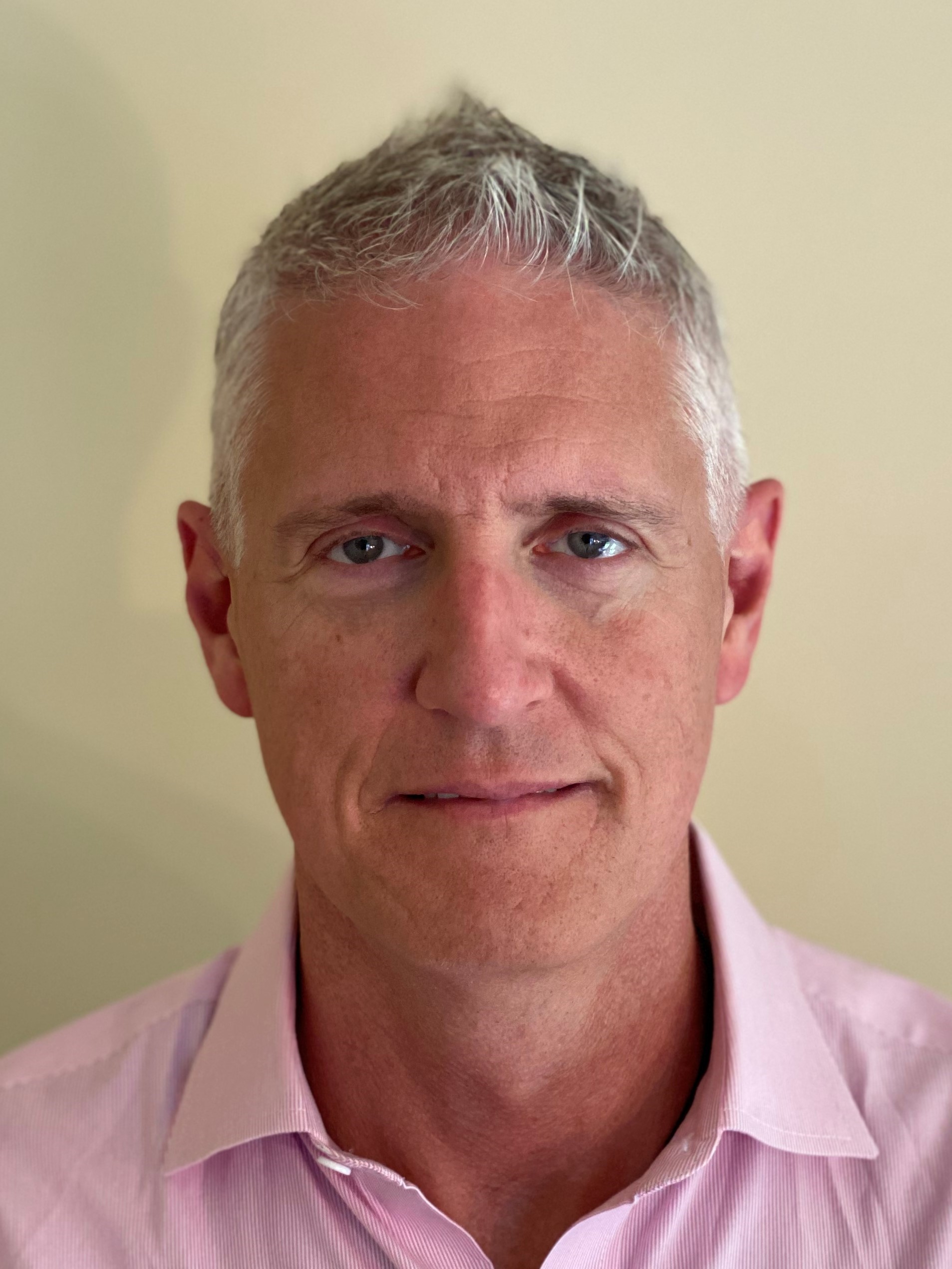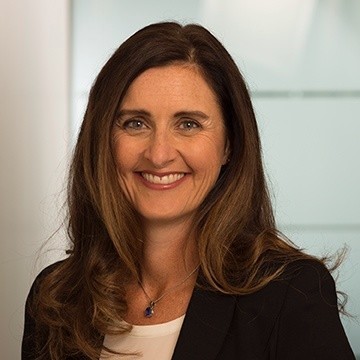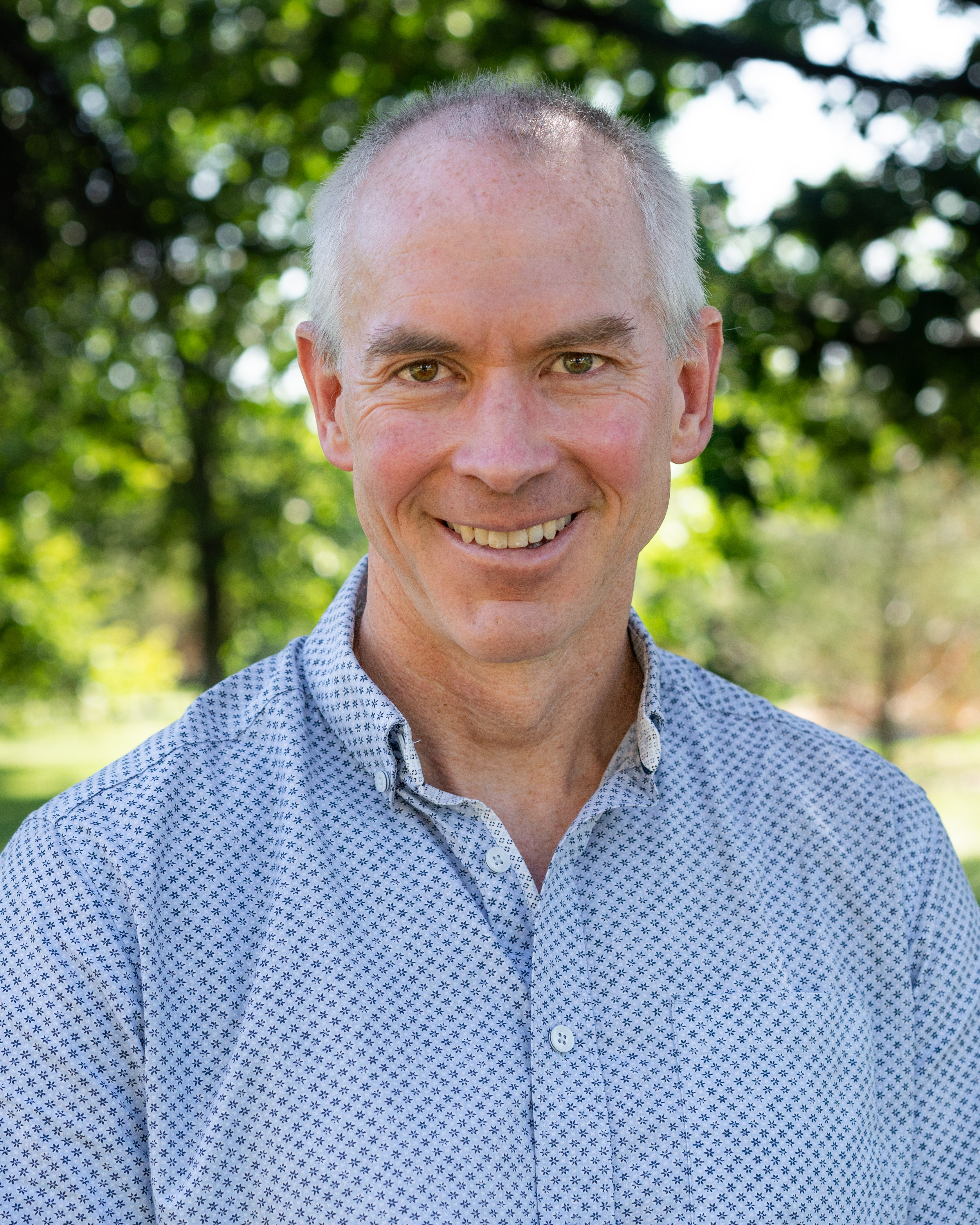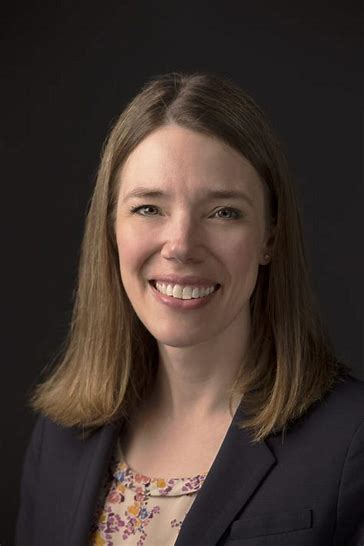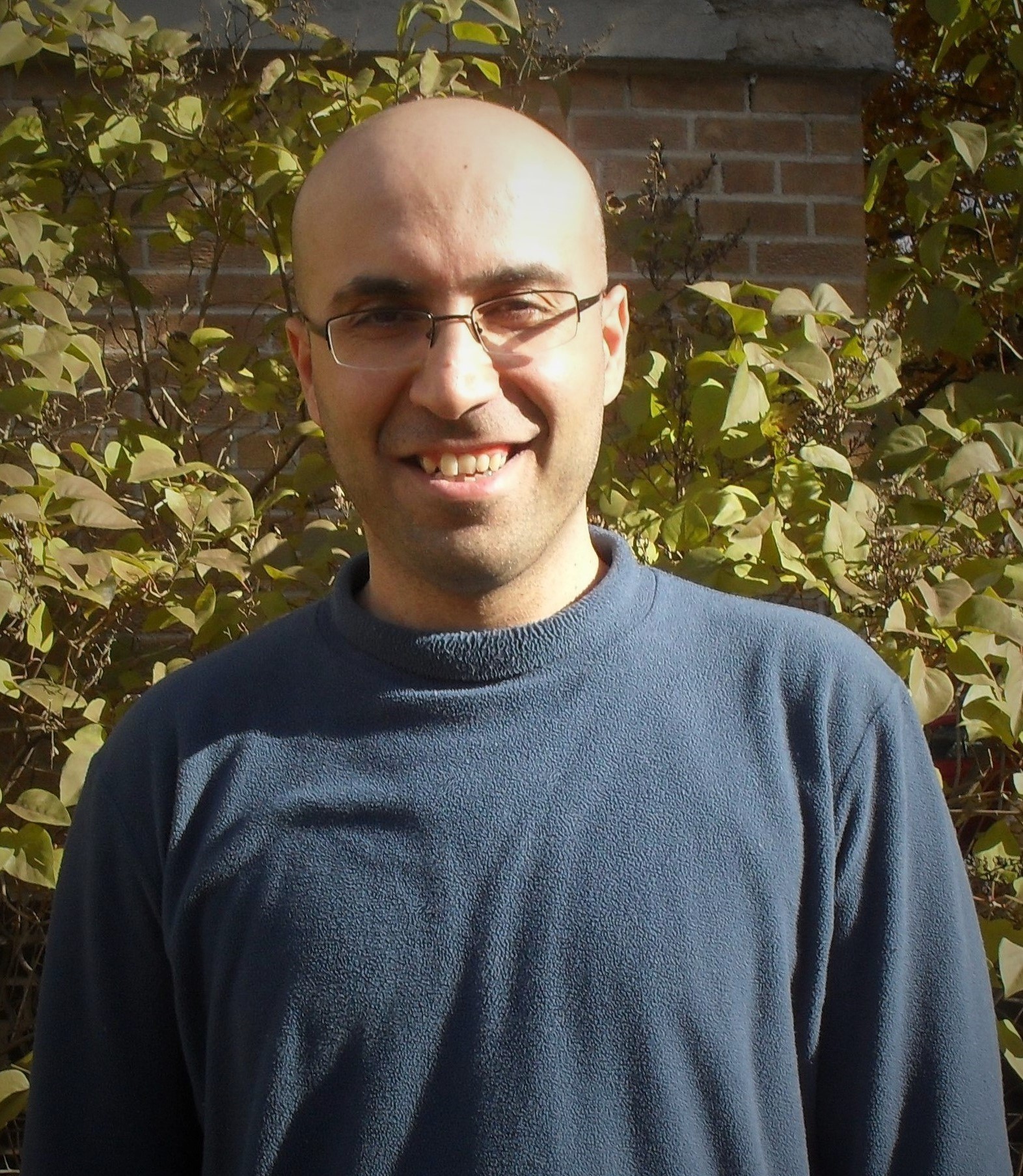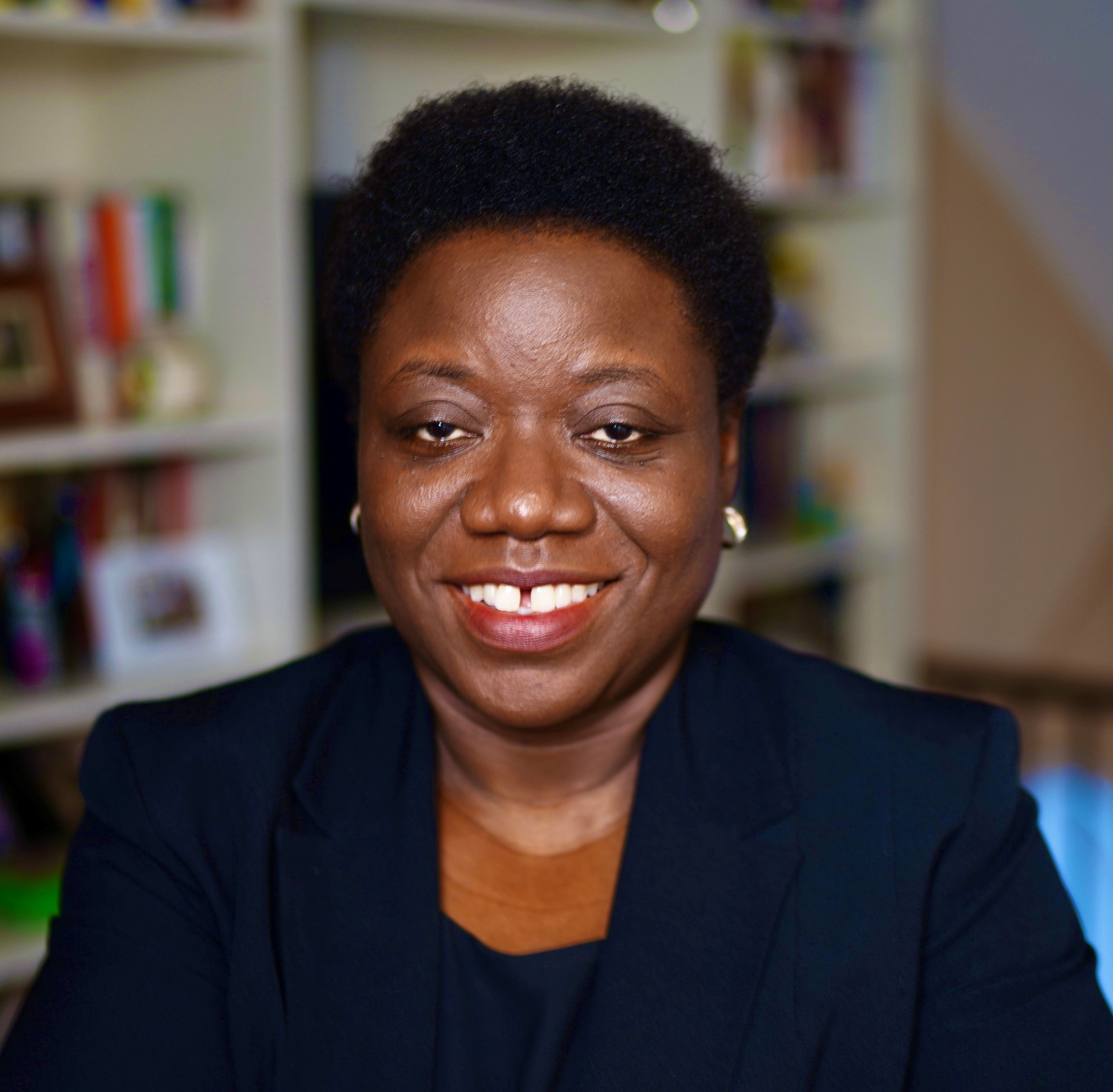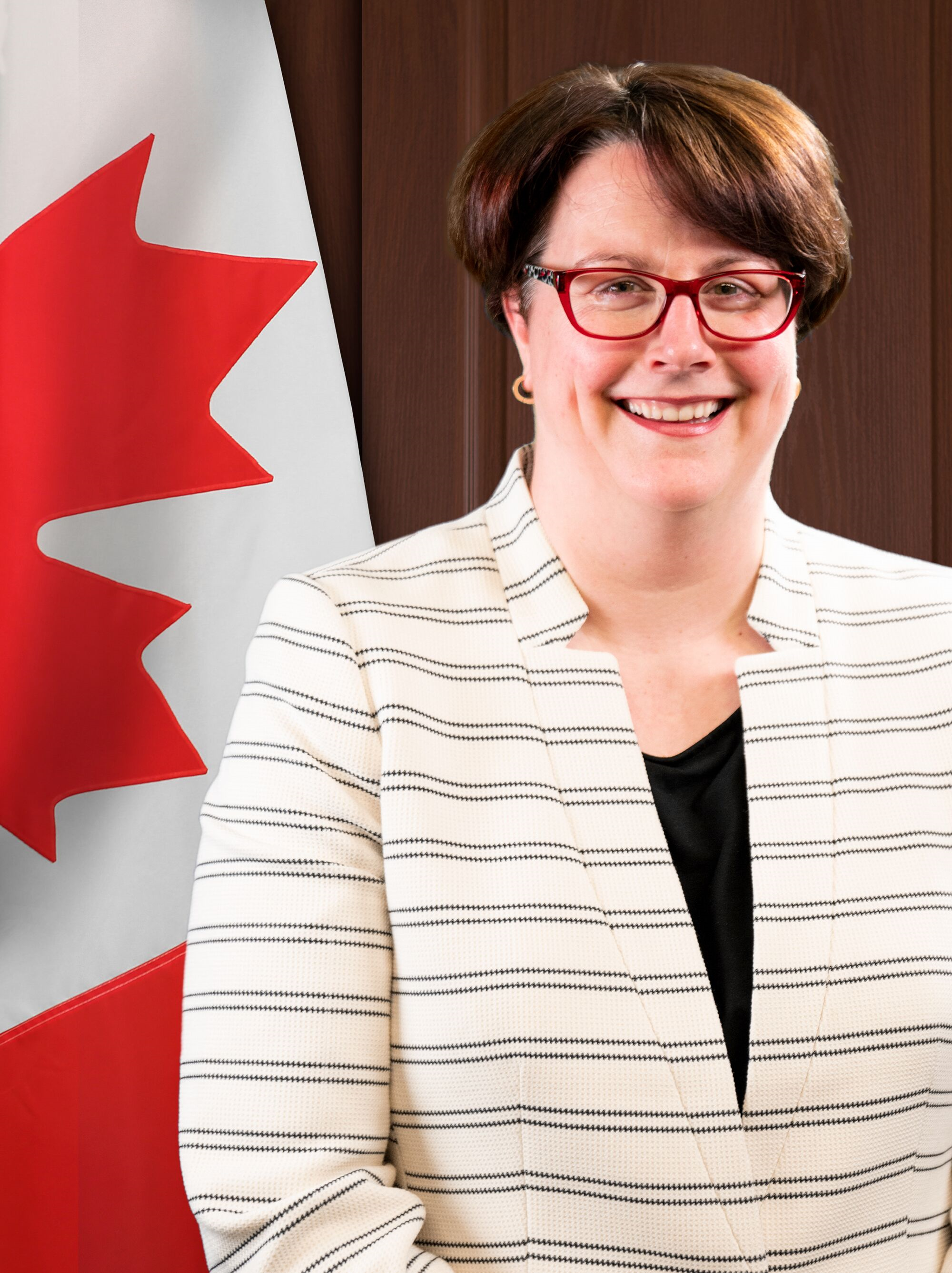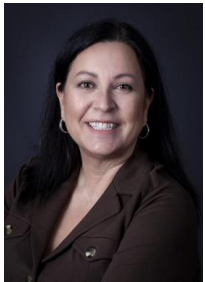Important: The GCConnex decommission will not affect GCCollab or GCWiki. Thank you and happy collaborating!
Data Conference 2022 Speakers
Virtual Expo | Agenda | CONFERENCE SPEAKERS | Networking Missions | Discover more about data | Announcements
Brought to you by Statistics Canada and the Canada School of Public Service with support from the GC Data Community
Conference Speakers
Foteini Agrafioti
Chief Science Officer, RBC and Head, Borealis AI
Dr Foteini Agrafioti is the Chief Science Officer at RBC and Head of Borealis AI, a RBC research institute dedicated to advancing ethical AI capabilities within RBC and our broader society. Foteini oversees a team of over 100 machine learning researchers and engineers in Labs across Canada. Prior to joining Borealis AI, Foteini founded and served as Chief Technology Officer at Nymi, a biometrics security company and maker of the Nymi wristband. Foteini is the inventor of HeartID, the first biometric technology to authenticate users based on their unique cardiac rhythms. She is a TED speaker and serves on the editorial review boards of several scientific journals. Foteini was named “Inventor of the Year” in 2012 at the University of Toronto where she received a Doctorate in Electrical and Computer Engineering and was named one of Canada’s “Top 40 Under 40” for 2017. Foteini serves as Co-Chair of the Government of Canada’s Advisory Council on Artificial Intelligence, advising the federal government on how to build on Canada’s strengths and global leadership in AI.
Participating in Building the future with responsible Artificial Intelligence
Follow: @fagrafioti on Twitter | on LinkedIn
Chris Allison
Director General and Chief Data Officer, Centre for Data Management, Innovation and Analytics, Corporate Data and Surveillance Branch, Public Health Agency of Canada
Christopher Allison (Chris) is the Director General of Data Management, Innovation and Analysis and Chief Data Officer at the Public Health Agency of Canada. Chris has worked in government for 20 years across operations, policing, immigration, national security, policy, major projects, air travel, open source, data, development and leadership. He is a self-driven continuous learner who is passionate about people, network analytics and systems - seeing the connections between our people, our environments, our systems and our organizations.
Participating in Digital and data transformation (moderator)
Follow: @ToferC on Twitter | on LinkedIn
Anil Arora
Chief Statistician of Canada, Statistics Canada
Anil Arora is an experienced senior public official, having worked at Statistics Canada for over 25 years leading significant programs and transformations. He was appointed Chief Statistician of Canada in September, 2016. He has also served in policy and regulatory roles in the Government of Canada at Natural Resources Canada and Health Canada. Mr. Arora has led substantive international initiatives, working with the United Nations and the OECD, and received numerous prestigious awards for leadership. He serves on a number of Boards and is active in community events and social causes. Mr. Arora received a Bachelor of Science from the University of Alberta, with subsequent studies in computer science. He holds a graduate certificate in public sector management and governance from the University of Ottawa and the Government of Canada’s Advanced Leadership Development Program.
Participating in Opening plenary and Data as a competitive advantage for Canada: the benefits of a data and digitally enabled public service
Shaida Badiee
Managing Director, Open Data Watch
Shaida Badiee is Managing Director of Open Data Watch, an NGO focused on monitoring and promoting open data in national statistical offices. She brings 36 years of experience in managing global development statistics at the World Bank and the long-time Director of the Development Data Group. In 2010, she led the World Bank’s Open Data Initiative, a ground-breaking program to provide full and free access to the World Bank’s extensive statistical databases. Today she works closely with partners such as Data2X, PARIS21, UN Statistics Division and others to harness the full potential of data for sustainable development.
Participating in Disaggregated data: Equity, diversity, and inclusion)
Follow: @ShaidaBadiee on Twitter | on LinkedIn | Open Data Watch
Lynn Barr-Telford
Assistant Chief Statistician, Social, Health and Labour Statistics Field, Statistics Canada
Lynn Barr-Telford is the Assistant Chief Statistician of the Social, Health and Labour Statistics Field at Statistics Canada. Lynn holds a Master’s Degree in Sociology from Carleton University and has several years of experience as a senior Executive with responsibility for large, complex statistical programs. The Social, Health and Labour Statistics Field provides accurate, timely and relevant information across a range of social subject matters to decision makers at all levels of government, to non-governmental organizations, to researchers and to the Canadian public. The portfolio includes a number of large survey and administrative data programs such as the Centre for Population Health Data; the Canadian Centre for Justice Statistics; the Centre for Gender, Diversity and Inclusion; and the Centre for Labour Market Information, among others. The Field is also the home for Canadian Census content expertise.
Participating in Health data strategies and data sharing (moderator)
Follow: on LinkedIn
Kara Beckles
Director General, Data Integration, Privy Council Office
Kara Beckles is Director General of Data Integration at the Privy Council Office, a position she took on during the summer of 2020. Kara previously held several positions across the Government of Canada, most recently at Agriculture and Agri-Food Canada as Director General of the Economic Research and Analysis Directorate and Departmental Data Lead. Kara holds a Bachelor of Arts (Hons.) in economics and business from the University of Winnipeg and a Master of Arts from Dalhousie University.
Emcee for Data Conference 2022
Chantal Bernier
National Practice Leader, Privacy and Cybersecurity, Dentons
Chantal Bernier leads Dentons’ Canadian Privacy and Cybersecurity practice group. She is also a member of the Firm’s Government Affairs and Public Policy group. As Assistant and Interim Privacy Commissioner of Canada, Chantal led national and international privacy investigations in the public and private sectors, as well privacy audits, privacy impact assessment reviews, technological analysis, and privacy policy development and research. Chantal leverages her years in high-ranking positions at the Government of Canada to provide clients with strategic counsel. She is also a member of Statistics Canada’s Advisory Council on the Modernization of Microdata Data Access and of the Standards Council of Canada’s Steering Committee on Canadian Data Governance Standardization Collaborative.
Participating in Privacy Frameworks and data for public good
Follow: on LinkedIn | Privacy and Cybersecurity Law
Francis Bilodeau
Associate Deputy Minister, Innovation, Science and Economic Development Canada
Francis Bilodeau was appointed Associate Deputy Minister of Innovation, Science and Economic Development Canada in January 2022. Prior to his appointment, he held various executive positions across the public service, including chief information officer of the Government of Canada, assistant secretary of Digital Policy and Services at the Treasury Board of Canada Secretariat, and founding assistant deputy minister for the Privy Council Office's Results and Delivery Unit. Francis has also held the position of executive director in the Treasury Board of Canada Secretariat's Government Operations Sector and worked in a number of senior roles at Infrastructure Canada, where he helped lead the development and implementation of multiple generations of federal infrastructure programming. Francis holds a master's degree in business administration and a degree in mechanical engineering.
Participating in Data as a competitive advantage for Canada: The benefits of a data and digitally enabled public service
Neil Bouwer
Vice-President, Innovation and Skills Development, Canada School of Public Service
Neil Bouwer is currently the Vice-President of Innovation and Skills Development Branch at the Canada School of Public Service. He has also served as an Assistant Deputy Minister at the Treasury Board of Canada Secretariat, Natural Resources Canada, the Canadian Food Inspection Agency, and the Privy Council Office of Canada; and in executive positions at the Financial Transactions and Reports Analysis Centre of Canada, Human Resources and Social Development Canada and the Business Development Bank of Canada. He has also worked at the Department of Finance and Western Economic Diversification Canada, and has Economics degrees from McGill University and St. Thomas University. Neil actively supports the Government of Canada policy and data communities, the Advanced Policy Analyst Program and the Free Agent HR Program.
Participating in Conference Summary
Marc Brouillard
Chief Digital Officer, Fisheries and Oceans Canada
Marc Brouillard is the Chief Digital Officer for the Department of Fisheries and Oceans in the Government of Canada. He has also served as Chief Technology Officer and acting Chief Information Officer of Canada at the Treasury Board of Canada Secretariat. Marc also served as deputy departmental CIO and acting departmental CIO at Treasury Board of Canada Secretariat. Prior to joining the Government of Canada, Marc was VP of Business Development for a local eCommerce Services start-up. Prior to that, he spent 13 years at MONTAGE IT Services, a division of MTS/Allstream, where he held numerous positions in technology consulting and business development. Marc provides strategic leadership in pursuing world class excellence in digital transformation, data and information management, and cyber security. He has had a long and successful career as a senior public and private sector executive in information management and technology.
Participating in Data technologies and data as a public good (moderator)
Stephen Burt
Assistant Deputy Minister, Data, Innovation, Analytics, Department of National Defence and Canadian Armed Forces
Stephen Burt is the Assistant Deputy Minister (Data, Innovation, Analytics) for the Department of National Defence and Canadian Armed Forces. He is also an active member of data community of the Government of Canada, and led the creation of the Chief Data Officer Council. As an organization, ADM(DIA) works to ensure that data are leveraged in all Defence programs to enhance capabilities and decision-making, and to provide an information advantage in military operations. Mr. Burt holds an undergraduate degree in history from the University of Ottawa, and a Master’s in Public Administration from Queen’s University.
Participating in Information-enabled data sharing
Follow: @DIADND_DIAMDN on Twitter | on LinkedIn
Harold Calla
Executive Chair, First Nations Financial Management Board
Harold Calla serves as the Executive Chair of the First Nations Financial Management Board (FMB). As one of three institutions created under the Fiscal Management Act, FMB supports First Nations economic development by increasing access to capital markets and providing capacity development support to First Nations in the areas of financial administration law development, and optional certification of financial performance and governance systems. A member of the Squamish Nation, Harold returned from many years focused on international business, to serve the Squamish Nation as a negotiator in the areas of economic development, land management and finance, and served eight years on the Squamish Council. He has also acted as an advisor and an arbitrator for First Nations in Western Canada. He was instrumental in the development of the First Nations Land Management Act, First Nations Fiscal Management Act (FMA), First Nations Commercial and Industrial Development Act (FNCIDA), and the First Nations Oil and Gas and Moneys Management Act. These optional legislative pieces allow First Nations on a sectorial basis the ability to move out from under the Indian Act.
Participating in New perspectives on Indigenous data
Jane Crofts
Founder and CEO, Data To The People
Jane Crofts is the founder of Data To The People and creator of Databilities®, the world’s first evidence-based data literacy competency framework. She works as a consultant, teacher, and advocate for data literacy across the globe, with clients spanning federal government departments, large private companies, not-for-profits, and healthcare and education providers. In her role as founder of Data To The People, Jane assists these organisations to assess their data literacy and to develop tools and resources to grow their competency in this area. Jane sits on the Advisory Board for The Data Literacy Project - a group of respected visionaries brought together to further the future of data literacy globally. Data To The People is a founding member of The Data Literacy Project.
Participating in Data literacy
Follow: @DataToThePeopl1 on Twitter | on LinkedIn
Benoit Deshaies
Acting Director of data and artificial intelligence, Treasury Board of Canada Secretariat
Benoit studied computer science at Carleton University in Ottawa. He is acting Director of Data and Artificial Intelligence at the Treasury Board of Canada Secretariat (TBS). He directs the development of the Directive on Automated Decision-Making and the Algorithmic Impact Assessment (AIA). These policy tools ensure that Automated Decision Systems are deployed in a manner that reduces risks to Canadians and federal institutions, and lead to more efficient, accurate, consistent, and interpretable decisions.
Participating in Building the future with responsible Artificial Intelligence
Follow: @MrDeshaies on Twitter
Pierre Desrochers
Director/Chief Privacy Officer, Office of the Privacy Management and Information Coordination, Statistics Canada
Pierre Desrochers is the director and Chief Privacy Officer at Statistics Canada. He provides leadership on programs, projects, services, and administrative policies in information and data. Prior to this position, he held various positions and functions within Privy Council Office, Indigenous Services Canada (ISC), Public Services and Procurement Canada (PSPC), and Library and Archives Canada (LAC). He holds a Ph.D. from the University of Montreal in applied human sciences within the interdisciplinary fields of information science and public administration. Dr. Desrochers was appointed in 2019 as a Canada School of Public Service Digital Academy Fellow in artificial intelligence and data science. He is a frequent lecturer at the École nationale d'administration publique and an adjunct professor at the School of Information Studies at the University of Ottawa.
Participating in Information-enabled data sharing
Follow: @pdesrochers on Twitter | on LinkedIn
Tom Dufour
Director General, Strategic Data Management Branch, Statistics Canada
Tom Dufour is Director General for Statistics Canada’s Strategic Data Management Branch, home of the Office of the Chief Data Officer, where he brings together experts in data standards and stewardship, statistical infrastructure and geomatics and privacy management to support initiatives across the Agency and with key government partners. He has helped drive advancements in program areas at Statistics Canada for over 30 years ranging from social statistics to macroeconomics.
Emcee for Data Conference 2022
Sevgui Erman
Director and Chief Data Scientist, Statistics Canada
Sevgui Erman is Chief Data Scientist and Senior Director of Data Science at Statistics Canada. She is passionate about technology, big data, artificial intelligence (AI), and its use for public good. She has experience in developing algorithms and systems in the private, public and academic sectors. Prior to joining Statistics Canada, Sevgui worked as technical project manager within Ericsson 4G Wireless LTE as well as Nortel Networks Optical R&D. She has experience in bringing academic research into practical applications. Sevgui holds a PhD from the University of Paris-Sud in Signal processing & System control, two areas that have strong links to AI. In early 2018 Sevgui has spearheaded the creation of a machine learning (ML)/AI solutions Hub within Statistics Canada, i.e. the Data Science Accelerator (DSA). Its purpose: to build data science capacity within the organization by solving concrete problems & delivering practical results that enable clients to move forward confidently with big & unstructured data. The DSA operated as a start-up, entirely business needs driven, on a cost-recovery basis, taking advantage of entrepreneurship best practices, catalyzing culture change through delivery of small wins, building confidence and trust in the new methods. In Sep 2019, Sevgui was appointed as the Senior Director of the new Data Science Division, created to provide an R&D nucleus for the exploration and the application of data science within the Agency. The division deploys specialized multidisciplinary expertise in the latest open source, hardware and cloud service techniques to tackle projects employing deep learning, Natural Language Processing (NLP), image processing, privacy preserving technics and information retrieval methods.
Participating in Building the future with responsible Artificial Intelligence (moderator)
Follow : on LinkedIn
Christiane Fox
Deputy Minister, Indigenous Services Canada
Christiane Fox was appointed to the position of Deputy Minister of Indigenous Services in September 2020. She is also the Deputy Minister Champion of the Federal Youth Network. Prior to her appointment, Christiane had been the Deputy Minister of Intergovernmental Affairs since November 2019, and the Deputy Minister of Intergovernmental Affairs and Youth from June 2017 to November 2019. She also held several positions at the Privy Council Office, including Assistant Secretary to the Cabinet, Communications and Consultations, Director of Operations, Policy, in the Federal-Provincial-Territorial Relations Secretariat, and Director General of Communications. Christiane started her career as a Communications Advisor at Industry Canada, now Innovation, Science and Economic Development Canada, where she worked in Communications, and in Science Policy. She also spent a year with the Competition Policy Review Secretariat, as the Director of Communications and Consultations. Christiane has a BA in Mass Communications and Psychology from Carleton University, and is a graduate of the University of Ottawa’s Masters Certificate Program in Public Administration.
Participating in New perspectives on Indigenous data
Yvan Gauthier
Head, Artificial Intelligence Accelerator, National Research Council of Canada
Yvan Gauthier is a senior data scientist with the National Research Council’s Digital Technologies Centre and the head of the NRC AI Accelerator for the Government of Canada, which delivers AI solutions to other federal departments and agencies and supports them in their digital transformation. Before, he worked for 20 years as a defence scientist with the Department of National Defence (DND), where he became the first-ever Director of Data Science and established a new data science team supporting DND’s Chief Data Officer. He also chaired a NATO Specialist Team on Advanced Analytics and AI and has led several operational research projects while being embedded with various parts of DND and the Canadian Armed Forces.
Participating in Artificial Intelligence-driven service delivery for Canadians (moderator)
Follow: @ygauthie on Twitter | on LinkedIn
Chantal Guay
CEO, Standards Council of Canada
Chantal Guay is the Chief Executive Officer (CEO) of the Standards Council of Canada (SCC), Canada’s voice on standards and accreditation on the national and international stage. SCC works closely with a vast network of partners to promote the development of effective and efficient standards that protect the health, safety and well-being of Canadians while helping businesses prosper. Prior to this role Chantal was SCC’s Vice President, Standards and International Relations where she was responsible for the overall management of the Canadian standardization network. She also served as SCC’s Vice President, Accreditation Services for five years where she led the development of the processes and quality management system that contributed to a renewed business model. Prior to SCC, Chantal was CEO of Engineers Canada. Under her leadership, the engineering profession adopted the 30 by 30 strategy which is aimed at raising the percentage of newly licensed engineers who are women to 30 per cent by the year 2030. Chantal was recognized for this work in 2020 when she was honoured with a fellowship from the Canadian Academy of Engineering. In January 2020, Chantal became the first woman to both lead SCC and represent Canada on the International Organization for Standardization (ISO) Council. She’s also very active in the international community, holding many positions such as Chair of the Pacific Area Standards Congress. She brings a strong understanding of the importance and value of standardization, quality, and systems management in the private and public sectors. Chantal is the Vice-Chair of the Council of Canadian Academies (CCA). The CCA carries out assessments with the goal of evaluating the best available evidence on particularly complex issues where the science may be challenging to understand, contradictory or difficult to assemble. Chantal is active in her community and has been mentoring young engineers throughout her career. Chantal holds a Bachelor of Applied Science in Geological Engineering from Université Laval, and a Master’s in Environmental Management from Université de Sherbrooke. She has also earned an Advanced Executive Certificate in General Management from the Queen’s University School of Business, as well as the ICD.D designation from the Institute of Corporate Directors after completing the ICD-Rotman Directors Education Program. Chantal shares her life with her husband Sheldon and her daughter Karina.
Participating in Data as a competitive advantage for Canada: the benefits of a data and digitally enabled public service
Maryam Haghighi
Director, Data Science, Bank of Canada
Maryam Haghighi is the Director of Data Science at the Bank of Canada. With several years of experience in a broad range of strategic roles involving data-driven innovation, information technology and digital transformation, she is responsible for the vision, and developing and executing strategies for data in relation to digitalization and information technology at the nation’s central bank. Over the course of her career, Maryam has overseen the creation of sophisticated solutions to complex data problems for multi-billion-dollar projects on the ground and in the skies, in private and public domains. Prior to joining the Bank, she led the team that pioneered the first ever space-based data analytics system, designed national safety and security measures, and was applauded for the largest data analytics memorandum to cabinet. She provided her expertise as Canada’s representative to international advisory panels under the United Nations, as well as to not-for-profit boards, and grants advisory for publicly-funded programs. Maryam holds a PhD in Mathematics from the University of Ottawa. She has a deep passion for interdisciplinary work and supporting women in STEM initiatives. She is active in community outreach and has served as a mentor and judge for multiple national and international scientific competitions.
Participating in Artificial Intelligence-driven service delivery for Canadians
Follow: on LinkedIn
Melissa Hathaway
President, Hathaway Global Strategies LLC
Melissa Hathaway is globally recognized as a thought leader in the fields of cybersecurity and digital risk management and has relationships with the highest levels of governments and international institutions. She served in two U.S. presidential administrations, spearheading the Cyberspace Policy Review for President Barack Obama and leading the Comprehensive National Cybersecurity Initiative (CNCI) for President George W. Bush. As President of Hathaway Global Strategies, Melissa brings a unique combination of policy and technical expertise, as well as board room experience that allows her to help clients better understand the inter-section of government policy, developing technological and industry trends, and economic drivers that impact acquisition and business development strategies. Ms. Hathaway has a B.A. degree from The American University in Washington, D.C. She has completed graduate studies in international economics and technology transfer policy, and is a graduate of the US Armed Forces Staff College, with a special certificate in Information Operations. She publishes regularly on cybersecurity matters affecting companies and countries.
Participating in Leveraging data as a competitive advantage and the role of the public sector
Follow: @CyberReadyIndex on Twitter
Ryan Hum
Chief Information Officer and Vice President, Data and Information, Canada Energy Regulator
Ryan is the CIO and VP of Data at the Canada Energy Regulator. Ryan is passionate about digital government, human-centered design, reconciliation, and being a father of two. He was a founding member of the Government of Canada’s Impact and Innovation Unit, where he served as the Chief Designer and Chief Data Scientist. During his career, he has worked on issues spanning immigration and settlement, disabilities in the workplace, mining, and health; he also spent time at the COVID Task Force at Health Canada. Ryan studied biology, engineering, and design, and is working toward a PhD. He is also an Adjunct Professor at OCAD University and has taught design, public policy and engineering at Carleton and the University of Toronto.
Participating in Data to support the environment and climate change
Follow: @ryanjhum on Twitter | on LinkedIn
Shaifa Kanji
Assistant Deputy Minister and Chief Digital Officer, Innovation, Science and Economic Development Canada
Shaifa Kanji assumed her role as Assistant Deputy Minister and Chief Digital Officer of the Digital Transformation and Services Sector (DTSS) of Innovation, Science, and Economic Development Canada (ISED) on Aug 9, 2021. She began her career in public service in 2011 and has led the digital transformation of Municipal Government (Region of Peel) and not-for-profit (Toronto and Region Conservation Authority) including establishing the vision and strategic technology direction for these organizations within a highly complex, political and multi-stakeholder environment. Before joining the public sector, Shaifa spent her career across multiple sectors – telecommunications, (Bell Canada), financial (Royal Bank) and consulting (Accenture). Those experiences gave her a broad perspective on the critical elements required to drive change and transformation in complex organizational structures. Shaifa holds an Executive MBA from The Western Ivey School of Business and a Computer Science degree from York University.
Participating in Digital and data transformation
Follow: on LinkedIn
Sukhdeep Kaur
Epidemiologist, Niagara Region Public Health
Sukhdeep completed her MSc from the Faculty of Applied Health Sciences at Brock University, in Ontario, Canada under the supervision of Dr. Antony Chum. During her MSc, with her lab, she focused on long-term health inequalities among minority populations (sleep disparity, suicide-related behaviors, job insecurity and precarious labor). Since her graduation in April 2021, she has been employed with Niagara Region Public Health (NRPH) as a data analyst and later transitioned to her current role as an Epidemiologist. As a part of Chronic Injury and Disease Prevention department at NRPH, she collaborates and consults with the senior leadership team and leads the data analysis aspects of divisional and departmental strategic initiatives.
Participating in Data access and partnerships to inform the public
Sandy Kyriakatos
Chief Data Officer, Canada Border Services Agency
Sandy Kyriakatos Joined the Strategic Policy Branch on Monday, December 2, 2019 as the new Chief Data Officer, responsible for Data Analytics, Data Governance, Data Science, Information Sharing and Access to Information and Privacy. Sandy joined CDO from Employment and Social Development Canada (ESDC), where in July 2016 she was appointed as the first Chief Data Officer in the GC. While implementing the Data Strategy Sandy spent the last three years maturing the data science capacity, data sharing, and data management at ESDC while championing a broad culture change around data. Prior to joining ESDC, she held a variety of positions in the private and public sector related to Data Analytics, Data Governance, Business Intelligence (BI) and Information Technology. She began her career in technical and advisory roles to and went on to lead organizational change in Analytics and Data. Her deep expertise across functional roles, industry verticals, and capabilities, brings unique insight into new role.
Participating in Digital and data transformation
Follow: @SandyKyriakatos on Twitter | on LinkedIn
Jeff Latimer
Director General, Health, Justice, Diversity and Populations, Statistics Canada
Jeff Latimer is the Director General responsible for health, justice, diversity and population data at Statistics Canada. He holds a PhD in Criminology and a Master’s Degree in Social Work, both of which focused on the intersection between health and justice. Throughout his 25 year career as a research and executive, Dr. Latimer has held a number of senior positions in the federal government including at CIHR, Justice Canada, and Correctional Services Canada. Dr. Latimer is currently focused on improvements in the quality, accessibility, and analysis of disaggregated data to better serve Canadians.
Participating in Disaggregated data: Equity, diversity, and inclusion (moderator)
Martin Lessard
Director, Data Science Division, Employment and Social Development Canada
Martin Lessard holds a bachelor's degree in Actuarial Science and a master's degree in Statistics. He has worked for over 25 years at Statistics Canada as a methodologist and analyst. In September 2020, Mr. Lessard joined the Office of the Chief Data Officer at Employment and Social Development Canada as Director of the Data Science Division. In 1995, Martin began his career at Statistics Canada working on various social, household and business surveys. Thereafter, he became particularly interested in administrative data and its integration, where he discovered its full potential. Working on various projects such as the longitudinal immigration database, the T1 family file and the real-time remote access system, he developed extensive experience in record linkage, quality assurance and confidentiality. Mr. Lessard will then lead, in quick succession, two major projects based on the integration of administrative databases: the first consisting of the creation of a population database and the second aiming at the creation of a database of all residential properties in Canada (Canadian Housing Statistics Program). In September 2020, Mr. Lessard joined Employment and Social Development Canada as Director of the Data Science Division.
Participating in Artificial Intelligence-driven service delivery for Canadians
Valerie A Logan
CEO and Founder, The Data Lodge, Inc
Founding The Data Lodge in 2019, Valerie is as committed to data literacy as it gets. With advisory services, bootcamps, and a peer community at The Data Lodge, she is certifying the world’s first Data Literacy Program Leads across commercial, nonprofit and public sectors. Previously, Valerie was a Gartner Research Vice President in the Chief Data Officer research team. She pioneered the Data Literacy research and the “speaking of data” by creating Information as a Second Language ® (ISL). For this work, she was awarded Gartner’s Top Thought Leadership Award in 2018. Valerie has more than 28 years of experience, including two decades in consulting and five years in telecommunications. In 2021, Ms. Logan was included in the Data Power Women List by CDO Magazine, and in 2018, she was named as a finalist for “Data Leader of the Year” at the Information Age Women in IT Awards. She was also recognized as a pioneer in consulting by Consulting Magazine in 2008 as one of 8 top women in global consulting. Valerie holds a B.S. in Math from SUNY College at Buffalo and an M.S. in Applied Math from New Mexico State. She is based in the Adirondack Mountains with her husband Brian in Brant Lake, New York.
Participating in Data literacy
Follow : Twitter | on LinkedIn | The Data Lodge
André Loranger
Assistant Chief Statistician, Statistics Canada
André Loranger is currently the Assistant Chief Statistician for Strategic Data Management, Methods and Analysis. He is also Statistics Canada’s Chief Data Officer responsible for the overall stewardship of the organization’s information data holdings. André, an economist with an M.A. (Economics) degree from the University of Ottawa, began his career in the public service at Statistics Canada in 1997 where he spent most of his career compiling estimates of GDP. Prior to his current position, André was the Director of Producer Prices Division from 2008 to 2012 and the Director General of the Macroeconomic Statistics Branch from 2012 to June 2013. More recently, he was the Assistant Chief Statistician for Economic Statistics responsible for the key economic indicators (CPI, GDP, etc.) produced by Statistics Canada. In recent years, André has been involved in international projects related to economic statistics. He was a member of the United Nations Committee of Experts on Environmental-Economic Accounting, the United Nations Expert Group on International Trade and Economic Globalization Statistics, the United Nations Expert Group on the Future of Economic Statistics and a number of international statistical working groups. André is currently a member of the United Nations Global Working Group on Big Data.
Participating in Conference Summary
Catherine Luelo
Chief Information Officer of Canada, Treasury Board of Canada Secretariat
Catherine Luelo is a Deputy Minister at the Treasury Board of Canada Secretariat and the Chief Information Officer of Canada. Prior to her appointment as CIO in July 2021, Catherine was the Senior Vice President and Chief Information Officer at Air Canada, where she was responsible for the Information Technology systems that support and enable Air Canada’s global business. In this role, she additionally led innovation in the artificial intelligence space while managing the security and reliability of Air Canada’s worldwide systems in an operational landscape that substantially shifted during the global pandemic. From 2001-2017, Catherine held senior management and executive roles at major Canadian companies, including Enbridge Inc., WestJet Airlines Ltd., and TELUS Communications. Catherine holds an MBA from Athabasca University in Alberta and a BSc from the University of Alberta. From 2018-2021, she served on the Board of Directors for scale ai, the Montreal-based Artificial Intelligence (AI) supercluster that aspires to increase competitive advantage for Canada globally in AI . She has also served as a Board Member for Creative Destruction Labs, as well as serving as Chair for Health Canada’s Industry Advisory Roundtable on COVID-19 Testing, Screening, Tracing and Data Management. Catherine is a proud mother of two children and is a fierce advocate for mental health. In March 2020, she was appointed to the Board of Directors for the Center for Addiction and Mental Health (CAMH) Foundation and participates regularly as a panelist and speaker on Mental Health in the workplace.
Participating in Role of data and the digitalization of government
Shawn Marshall
Departmental Science Advisor, Environment and Climate Change Canada
Shawn Marshall serves as Departmental Science Advisor at Environment and Climate Change Canada, where he supports the Department's science programs and the Chief Science Advisor of Canada. Dr. Marshall joined ECCC in 2019 on an Interchange agreement from the University of Calgary, where he is a Professor in the Department of Geography. He held the Canada Research Chair in Climate Change from 2007-2017, supporting his long-term research programs studying glacier-climate processes in western and Arctic Canada. Dr Marshall is the Canadian representative to the International Arctic Science Committee (IASC) Cryosphere Working group and he co-chairs the World Meteorological Organization (WMO) Global Cryosphere Watch program. He is currently supporting ECCC on the development of the forward-looking National Climate Change Science Plan.
Participating in Data to support the environment and climate change
Follow: @ShawnJMarshall1 on Twitter | on LinkedIn
Ted McDonald
Director, New Brunswick Institute for Research, Data and Training, and Professor, University of New Brunswick
Ted McDonald is a Professor in the Department of Political Science at the University of New Brunswick in Fredericton. He holds a Ph.D. in Economics from the University of Melbourne, Australia. He is the founding Director of the NB Institute for Research, Data and Training, New Brunswick’s only provincial administrative data centre. He is also the Chair of the Canadian Research Data Centre Network Academic Council, a member of the CRDCN Board, and the Academic Director of the NB Statistics Canada Research Data Centre. In addition, Dr. McDonald is on the executive committee of Health Data Research Network Canada and is the New Brunswick lead of the Maritime SPOR SUPPORT Unit (MSSU). His main areas of research include the health status and health services use of immigrants and other subpopulations, socioeconomic determinants of cancer and other chronic diseases, and immigrant retention and mobility. Dr. McDonald is a UNB research scholar for 2020-22 and previously held that title in 2012-14. In 2019 he was co-winner of the Mike McCracken award for Economics Statistics, awarded by the Canadian Economics Association.
Participating in Data access and partnerships to inform the public
Follow: @NBIRDT_UNB on Twitter | on LinkedIn | on Facebook | on Instagram | on SlideShare | on YouTube
Jennifer Miller
Director General, Marketplace Framework Policy Branch, Innovation, Science and Economic Development Canada
Jennifer Miller is the Director General of the Marketplace Framework Policy Branch at Innovation, Science and Economic Development Canada, focusing on issues related to privacy, data protection, intellectual property, copyright, competition and insolvency. Previously, she was responsible for the federal Innovation Superclusters Initiative and served as ISED’s Director of Emerging Technologies. Previous roles within the federal government have included various responsibilities at the Privy Council Office, including economic and social policy analysis and advice to Cabinet, as well as leadership of the policy innovation agenda. Jennifer also spent several years at ESDC, where she worked on various files related to post-secondary education and student financial assistance.
Participating in Data technologies and data as a public good
Saeid Molladavoudi
Senior data science advisor, Data Science Division, Statistics Canada
Dr. Saeid Molladavoudi is the Senior Data Science Advisor in Statistics Canada. He provides advisory services to Statistics Canada’s employees in a wide array of data techniques and issues related to data science, as well as strategic advice to senior management in support of statistical programs. He is responsible for exercising a catalytic role in the implementation of the agency’s Data Science strategy and actively connecting and being involved in national and international data science activities and projects that can propel Statistics Canada forward in its mandate. In this technical role, he acts as ambassador of Data Science performing collaborative research and creating and maintaining partnerships with internal and external stakeholders. His expertise in identifying opportunities and determining effective road maps helps him bring together ideas, individuals and technologies to obtain valuable information from data at large scale.
Participating in Artificial Intelligence-driven service delivery for Canadians
Follow: on LinkedIn
Ima Okonny
Chief Data Officer, Employment and Social Development Canada
Ima, the Chief Data Officer at Employment and Social Development Canada (ESDC), has over 21 years of experience in the field of data. She has extensive experience with building the evidence base through the development of analytical databases and tools, implementing departmental data reporting and release strategies, data management, data privacy protocols and with forward-looking policy development and research. Ima has an educational background in Mathematics, Computer Programming and Public Management and during her time with the Government of Canada, she has received several nominations and awards for her leadership and results. She is passionate about helping organizations develop the capabilities required to ethically and intentionally unleash concrete business value from data.
Participating in Digital and data transformation
Follow: on LinkedIn
Marie-France Paquet
Chief Economist, Global Affairs Canada
Mme Paquet is the Chief Economist and Director General, Trade Analysis Bureau, at Global Affairs Canada since September 2017. As Chief Economist, she leads a team of analysts in reporting and advising on international trade, investment and economic issues. Current economic research and analysis projects include the impact of trade agreements on labor and gender, the determinants of export for SMEs, the impact of the Trade Commissioner Services on Canadian exporters’ performance, or the impact of foreign direct investment on the economy, the vulnerability of Canadian supply chains, and the impact of COVID19 on trade. Mme Paquet has previously worked in other government departments and in academia. In academia, she taught economics at the School of Management at the University of Ottawa. She worked in the Economic and Fiscal Policy Branch, and in the International Trade and Finance Branch, at Finance Canada. Mme Paquet was the Director of Operations, Economic and Regional Development Policy Secretariat at the Privy Council Office, providing policy advice to the Clerk of the Privy Council and the Prime Minister on a wide range of economic and regional development issues. She also worked at Transport Canada on the coordination of the policy response to the Lac-Mégantic tragedy. Mme Paquet received her PhD in Econometrics from Université Laval jointly with Université Paris I Panthéon-Sorbonne.
Participating in Data-fueled economic recovery and strategic global competitiveness
Follow: @PaquetMF on Twitter | on LinkedIn
Johanne Provençal
Research Program Director, Canadian Research Data Centre Network
Johanne Provençal (Research Program Director, Canadian Research Data Centre Network) provides strategic leadership for CRDCN’s collaborative research, training, and knowledge mobilization plans and activities. She has 20 years of administrative leadership experience and a career-long track record of developing collaborative initiatives across research disciplines and sectors. She is skilled in collaborating with senior leadership in the university, government, and nonprofit sectors and has extensive experience in planning, operationalizing, and reporting on multi-stakeholder, multi-year, concurrent initiatives. Johanne’s PhD and previous academic work focused on research funding policy and research as a public good.
Participating in Data access and partnerships to inform the public
Follow: @provencal_ms_j on Twitter | on LinkedIn
Daniel Quan-Watson
Deputy Minister, Crown-Indigenous Relations and Northern Affairs Canada
Daniel Quan-Watson is a proud public servant who is passionate about the role that public institutions play in shaping Canada and the lives of Canadians. His appointment at Crown-Indigenous Relations and Indigenous Affairs is his fifth appointment as a Deputy Minister, having been Deputy Minister (and previously Associate Deputy Minister) of Western Economic Diversification, Chief Human Resources Officer for the Government of Canada and Chief Executive Officer, Parks Canada. Much of his career has focused on work with Indigenous peoples and issues, having been the Senior Assistant Deputy Minister for Policy and Strategic Direction at the former Indian and Northern Affairs Canada, Director General of the Aboriginal Justice Directorate at the federal Department of Justice, and Director of Aboriginal and Territorial Relations at INAC’s Northwest Territories Regional Office. With the Government of British Columbia, he was Director of Treaty Implementation and Settlement Legislation where he led the development of the Nisga’a Final Agreement Act (British Columbia) among other major initiatives and, with the Government of Saskatchewan where he was responsible for first negotiations between provincial Department of Education and what was then the Federation of Saskatchewan Indian Nations. In the context of these positions, he played key roles in the negotiation of modern treaties, specific claims and many other agreements and processes. He was also the lead for several key legislative initiatives, litigation files and alternative justice programs. He has worked with Inuit, Métis and First Nation governments, communities and entities in every jurisdiction across Canada, and has lived in British Columbia, Alberta, the Northwest Territories, Saskatchewan, Ontario and Quebec. Beyond this experience, Daniel has significant background in economic development and innovation issues, federal-provincial-territorial relations, labour relations and human resources issues, and cultural and ecological heritage matters. He has represented Canada on numerous issues at forums around the world and has represented the federal government in several national federal-provincial-territorial forums. Daniel is a pilot, sang for a time with the Regina Philharmonic Choir, has taught firearms safety and hunting courses, and has represented Canada in French, English and Spanish. His record for riding a Harley-Davidson from Ottawa to Edmonton is 46 hours and 10 minutes, one he intends never to repeat or beat.
Participating in New perspectives on Indigenous data
Howard Ramos
Chair, Canadian Statistics Advisory Council and Professor and Chair, Department of Sociology, Western University
Dr Howard Ramos is the Chair of the Canadian Statistics Advisory Council and is also Chair of the Department of Sociology at Western University and Professor. He investigates issues of social justice and social change and has published five books and over 50 academic articles and chapters on social movements, human rights, Indigenous issues, environmental advocacy, urban change, economic and tourism development, technology, ethnicity, race, immigration, and equity, diversity and inclusion in higher education. Dr. Ramos has worked with a wide range of advocacy and community organizations and is committed to knowledge translation and evidence-based policy.
Participating in Disaggregated data: Equity, diversity, and inclusion
Eric Rancourt
Director General, Modern Statistical Methods and Data Science Branch, Statistics Canada
Eric Rancourt is Director General of the Modern Statistical Methods and Data Science Branch and Principal Data Ethics and Scientific Integrity Officer at Statistics Canada. He has worked at Statistics Canada for 31 years and has occupied several roles such as Director General of Strategic Data Management, Director of International Cooperation, Director of Corporate Planning, Head of research, Production manager of Survey Methodology Journal, and Researcher. His main areas of work have been on treatment of missing data, estimation, gathering, safeguarding and using of administrative and alternative data in statistical programs. Recently his work has been on frameworks for optimizing privacy and information and on data ethics. He holds a BSc in Statistics from University Laval as well as a BA in Ancient Studies and in Medieval Studies from the University of Ottawa. He is currently completing studies in philosophy, focusing on data ethics. He is Chair of the Canadian Statistical Sciences Institute (CANSSI). He has been involved in many professional statistical associations and is an elected member of the International Statistical Institute ISI. His recent papers are on admin data as a paradigm, the application of the scientific approach and the use of alternative data collection methods.
Participating in Privacy Frameworks and data for public good
Sonya Read
A/Assistant Secretary, Digital Policy and Services, Office of the Chief Information Officer, Treasury Board of Canada Secretariat
Sonya Read is the acting Assistant Secretary of Digital Policy and Services in the Office of the Chief Information Officer. She previously held the position of Executive Director for Digital Policy, leading policy initiatives to support the digital transformation of government. Sonya began her career in the public service in 1999 with Human Resources Development Canada, working on legislation and regulations, as well as federal provincial agreements, to support the transformation of the Canada Student Loans Program. Between 2004 and 2017 she worked at Infrastructure Canada, in progressively senior positions, working on policy issues related to infrastructure and the environment. She has a Bachelor of Arts (Honours) in political science from Acadia University and a law degree from Western University.
Participating in Information-enabled data sharing (moderator)
Cynthia Rudin
Professor of computer science, electrical and computer engineering, statistical science, mathematics, and biostatistics and bioinformatics at Duke University
Cynthia Rudin is a professor of computer science, electrical and computer engineering, statistical science, mathematics, and biostatistics & bioinformatics at Duke University. She directs the Interpretable Machine Learning Lab, whose goal is to design predictive models with reasoning processes that are understandable to humans. Her lab applies machine learning in many areas, such as healthcare, criminal justice, and energy reliability. She holds an undergraduate degree from the University at Buffalo, and a PhD from Princeton University. She is the recipient of the 2022 Squirrel AI Award for Artificial Intelligence for the Benefit of Humanity from the Association for the Advancement of Artificial Intelligence (the “Nobel Prize of AI”). She is a fellow of the American Statistical Association, the Institute of Mathematical Statistics, and the Association for the Advancement of Artificial Intelligence. Her work has been featured in many news outlets including the NY Times, Washington Post, Wall Street Journal, and Boston Globe.
Participating in Building the future with responsible AI
Follow: @CynthiaRudin on Twitter | Papers | Code
Étienne Saint-Pierre
Director General, Macroeconomic Accounts Branch, Statistics Canada
Étienne Saint-Pierre has over 26 years of experience at Statistics Canada and has held various positions, progressing over the years to more senior roles. Étienne is currently Director General – Macroeconomic Accounts Branch and he is responsible for the production of detailed and timely indicators (GDP, Trade Statistics, Government Statistics, Balance Sheets) that provide a complete perspective of the Canadian economy. Étienne is an active participant on international committees. He is Canada’s representative on the G20 Data Gaps Initiative, he is a member of the United Nations Advisory Experts Group on National Accounts and of the Steering Group for National Accounts in the United Nations Economic Commission for Europe. Prior to joining the Macroeconomic Accounts Branch, Étienne held key strategic roles for the Census of Agriculture and was responsible for the novel Integrated Business Statistics Program that currently processes most business surveys at Statistics Canada. Étienne holds a Master of Economics, with a specialization in public finance, as well as a Bachelor in Economics from Laval University.
Participating in Data-fueled economic recovery and strategic global competitiveness (moderator)
Taki Sarantakis
President, Canada School of Public Service
Taki Sarantakis has been President of the Canada School of Public Service since July 2018, having previously served as Associate Secretary of the Treasury Board at the Treasury Board of Canada Secretariat. Mr Sarantakis spent most of his career at Infrastructure Canada, including as Assistant Deputy Minister of Policy and Communications. In 2011 Mr Sarantakis was awarded Canada's Public Service Award of Excellence in Public Policy, and in 2013 he was a recipient of the Queen Elizabeth II Diamond Jubilee Medal. Prior to joining the federal government, Mr Sarantakis was a doctoral candidate at the University of Toronto. He holds a BA and an MA from York University in Toronto, as well as an Executive Certificate in Public Policy from the Harvard Kennedy School of Government. He is a graduate of the Rotman School of Management's Institute of Corporate Directors Education Program, holding the ICD.D designation.
Participating in Opening plenary, Leveraging data as a competitive advantage and the role of the public sector (welcomes the speaker), and Data as a competitive advantage for Canada: the benefits of a data and digitally enabled public service (interviewer)
Crystal Sewards
Manager, Office of the Chief Data Officer, Statistics Canada
Crystal has 30 years of experience working in the Federal Government with a background in data stewardship, data analysis and geomatics. Crystal holds a degree in Human Geography from the University of Ottawa with a specialization in economics and statistics.
Participating in First day closing remarks and Data access and partnerships to inform the public (moderator)
Vidya ShankarNarayan
Chief Information Office and Assistant Deputy Minister, Information Systems Branch, Agriculture and Agri-Food Canada
Vidya ShankarNarayan is the CIO and Assistant Deputy Minister, Information Systems Branch at Agriculture and Agri-Food Canada. Over the past 25 years, Vidya has held multiple positions in both the private and public sectors, leading high-profile initiatives related to service delivery and digital technologies. Previously, Vidya worked at Innovation, Science and Economic Development (ISED) and Employment and Social Development Canada (ESDC), where she passionately focused on improving and innovating digital policy and service delivery with a vision of designing and implementing simpler and efficient digital government services. She has also held executive positions at the Treasury Board of Canada Secretariat, Global Affairs Canada and Passport Canada. She holds a Masters degree in Architecture, specializing in Design and Technology from Carleton University. Vidya is an active community member, participating on various boards including the World Economic Forum, Global Blockchain Congress and Algonquin College. In her spare time, Vidya practices yoga and meditation and is a champion for diversity and inclusion.
Participating in Role of data and the digitalization of government (interviewer)
François Soulard
Research manager, Census of Environment, Statistics Canada
François Soulard is Research Manager for the new “Census of Environment” program at Statistics Canada. François has been involved in the field of environmental statistics for 25 years. He and is team are responsible for implementing the land, water and ecosystems components of the U.N. System of Environmental-Economic Accounting (SEEA). They are also responsible for StatCan's flagship publication “Human Activity and the Environment”, which recently released it’s latest edition titled “Accounting for ecosystem change in Canada”. François regularly provides international training and cooperation on the development and applications of the SEEA, namely on ecosystems, land, water, urban and ocean accounts. François holds a Ph.D. in Geography from the Chinese University of Hong Kong.
Participating in Data to support the environment and climate change (moderator)
Follow: @soulfra on Twitter
Eric Sutherland
Executive Director, Pan-Canadian Health Data Strategy
Eric is a “Data Guy with personality” and Data Strategist with a passion for enabling trusted insight through implementation of leading information management practices and linking enterprise strategy to practical solutions with business, technology, and data partners. He is the head of the Pan-Canadian Health Data Strategy which envisions the better use of data for health systems, public health, population health, research, and care. This work is led by the Public Health Agency of Canada in collaboration with all jurisdictions. Previously, Eric worked as Executive Director, Data Governance Strategy at the Canadian Institute for Health Information, and Director, Information Management Strategy and Policy at the Ontario Ministry of Health and Long-Term Care. He continues to recover from 20 years at a major Financial Institution, with a variety of roles lead data, business, and technology groups across Finance and Risk.
Participating in Health data strategies and data sharing
Stephen Tapp
Chief Economist, Canadian Chamber of Commerce
Stephen Tapp is the Chief Economist at the Canadian Chamber of Commerce. In this role, he is a key member of the Chamber’s executive leadership team, responsible for the operations of the new Business Data Lab as well as all economic analysis and research. His current focus is on developing the Chamber’s data and analytics capabilities to provide real-time, forward-looking insights for Canadian businesses of all sizes, in all sectors and regions of the country. Stephen brings 20 years of diverse experiences at many of Canada’s top economic organizations including at: Export Development Canada as the Deputy Chief Economist, the Bank of Canada, Parliamentary Budget Office, Finance Canada, two think tanks as well as academia. He is a recognized thought leader, frequent commentator, and sought-out spokesperson on economic issues in Canada. Stephen’s research was awarded the Purvis prize for Canadian economic policy and has been published in academic journals, such as the Canadian Journal of Economics and Canadian Public Policy. He has a Ph.D. and M.A. in Economics from Queen’s University and an Honors B.A from Western. During his undergrad, he studied in the Netherlands and was the owner-operator of a student painting company.
Participating in https://wiki.gccollab.ca/Data_Conference_2022_Agenda#Data-fueled_economic_recovery_and_strategic_global_competitiveness Data-fueled economic recovery and strategic global competitiveness]
Follow: @stephen_tapp on Twitter | on LinkedIn
Celine Teo
MSc, PhD student, Social epidemiology, Brock University
Celine is currently a PhD student in social epidemiology at Brock University. Her main interest is in the application of data analytics to population health to investigate questions of health equity and interventions to reduce health disparities. Her research continues to investigate the social determinants of LGBT+ health in the areas of mental health, addictions, and suicidality. Her work addresses health equity concerns by combining 1) evaluation of the effectiveness of population health interventions and 2) collaborations with community and government partners to promote solution-focused research. As a member of the LGBTQ+ community and a person of color, she has drawn on her lived experience to highlight the disconnect between community concerns and academic research, which helps inform her work going forward.
Participating in Data access and partnerships to inform the public
Follow: @celinet313 on Twitter | on LinkedIn
Christopher Valiquet
Director, GC Data Community, Canada School of Public Service
Christopher Valiquet is the founding Director of the Government of Canada Data Community at the Canada School of Public Service. He is dedicated to building connections and solutions that help the federal public service to harness data for better decisions and operations. Prior to this, he served as Senior Advisor at the Privy Council Office, where he supported the Prime Minister, Cabinet and the Clerk in navigating transition, setting priorities, making policy and tracking implementation. Christopher began his public service career at the Office of the Auditor General over eighteen years ago. He then held progressively senior positions at Treasury Board Secretariat and Natural Resources Canada. His work has focused on a range of activities to improve economic competitiveness, environmental performance, social outcomes and the efficiency of government. Christopher earned his BA (Honours) in International Development from the University of Guelph, and his MA in Public Policy and Administration from Concordia University.
Participating in First day closing remarks
Follow: on LinkedIn
Anna van der Kamp
Director of Innovation Policy, Natural Resources Canada
Anna van der Kamp has worked on environmental and clean technology issues for over 25 years in the private sector, non-government organizations and for the last 12 years in the federal government. Prior to her position as the Director of Innovation Policy and Natural Resources Canada, she was at the Privy Council Office’s Results and Delivery Unit and before that at Environment and Climate Change Canada working on regulatory and strategic policy files. In the private sector, she was a Director with The Delphi Group, focussing on international GHG emissions reduction projects and environmental education and also worked for a company that promoted sustainable sports management.
Participating in Data to support the environment and climate change
James Van Loon
Chief Data Officer, Health Canada
James Van Loon is Health Canada’s Chief Data Officer and also serves as the department’s Chief Scientific Data Officer. He has a passion for innovating programs and delivery from the ground up in cooperation with partners across government, nationally, and internationally. Most recently, James led efforts of Health Canada, the Public Health Agency, Public Services and Procurement Canada, Statistics Canada and other partners to create a dynamic model of pan-Canadian supply and demand on Personal Protective Equipment. As a Director General on the COVID-19 Task Force, James was instrumental in leading the development of analytic tools for the Critical Drug Reserve, as well as the Testing and Vaccine Secretariats. With over 20 years of experience in developing and managing federal regulatory programs, James is recognized as an action-oriented leader who has advanced key files at Health Canada and Environment Canada.
Participating in Health data strategies and data sharing
Stefaan G Verhulst
Co-Founder and Chief Research and Development Officer, Governance Laboratory, New York University
Stefaan G Verhulst is Co-Founder and Chief Research and Development Officer of the Governance Laboratory @NYU (GovLab) where he is building an action-research foundation on how to transform governance using advances in science, data and technology. Verhulst’s latest scholarship centers on how technology can improve people’s lives and the creation of more effective and collaborative forms of governance. Specifically, he is interested in the perils and promise of collaborative technologies and how to harness the unprecedented volume of information to advance the public good.
Participating in Data technologies and data as a public good
Follow: on LinkedIn
Erica Vezeau
Director General, Digital Academy, Canada School of Public Service
Erica Vezeau is the acting Director General for the Canada School of Public Service’s Digital Academy. She joined the Academy in March 2021 to support its mandate to help public servants gain the knowledge, skills, and mindsets they need to succeed in the digital age. She has over 15 years of previous private- and public-sector experience in program administration, service delivery, and strategic planning with a special interest in digitally focused projects to modernize business processes and improve government services.
Participating in Data literacy (moderator)
Follow: @EricaVezeau on Twitter | on LinkedIn
Gina Wilson
Deputy Minister, Women and Gender Equality and Youth
Gina Wilson rejoined Women and Gender Equality Canada (WAGE) as Deputy Minister on September 1, 2021. She previously served as Deputy Minister of WAGE from 2017 to 2019, where she led the establishment of WAGE as a new department, ensured that GBA Plus wasfully instituted in government, and served as the first Chair of the federal Indigenous Women’s Circle.Gina was in the role of Deputy Minister, Diversity and Inclusion and Youth, and Senior Associate Deputy Minister, Canadian Heritage, to which she was appointed on January 27, 2020, and where she oversaw the release of Canada’s first-ever State of Youth Report; engaged Canadians in a series of round tables and summits on anti-racism; lead the co-development of the Missing and Murdered Indigenous Women and Girls National Action Plan; and launched the development of a Canada-wide LGBTQ2 Action Plan. She is also currently the Deputy Minister Champion for Indigenous Federal Employees.In 2019, Gina was appointed as Deputy Minister, Public Safety Canada, and Senior Advisor to the Privy Council.She joined the Federal Government in 1996 and held several senior executive positions at several departments, including the Privy Council Office, Aboriginal Affairs and Northern Development Canada, and Employment and Social Development Canadaand the Correctional Service of Canada.Gina is Algonquin and began her career in her First Nation community of Kitigan-Zibi as Executive Director of Health and Social Services. She was also CEO of the Assembly of First Nations.Gina is the recipient of the 2020 Indspire Award for her leadership and her lifelong work on Indigenous issues and support for Indigenous employees.Gina holds a Bachelor of Social Sciences from the University of Ottawa.She has three beautiful children –Dylan, Kayla and Royce –and treasures her granddaughter, Charlotte.
Participating in New perspectives on Indigenous data (moderator)
Follow: on LinkedIn | on Instagram
GC Data Community | Contact us | Subscribe | Join us on GCcollab | GC Data Community Partners



